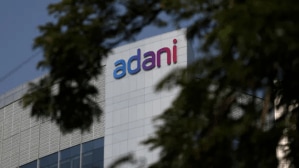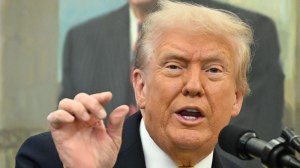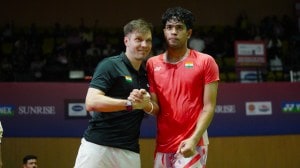New trade pact to boost India-Russia trade
Moscow, Jan 17: India and Russia have reached agreement to break out of the rupee-rouble trade arrangement and adopt the convertible curre...

Moscow, Jan 17: India and Russia have reached agreement to break out of the rupee-rouble trade arrangement and adopt the convertible currency trade, with the purpose of involving the private sectors of the two countries, in order to boost the current low level of bilateral trade turnover.
“This is a major achievement of the Indo-Russian joint commission meeting in Moscow,” said Union Finance Minister Yashwant Sinha, while talking to Indian correspondents, after a series of parleys with Deputy Prime Minister Ilya Klebanov who led the Russian delegation.
Sinha said that at the plenary session of the joint commission, he tried to impress upon the Russian side that “we need to look beyond” the rupee payment track, as the rupee-fund would be exhausted in the next few years. “India has been regular in the repayment of its debt, but this should not penalise it by denying opportunities for trade through normal routes,” Sinha said addressing the plenary session. “The rupee should only be in additionality and not the main source,” he added.
Union finance minister said he also raised this issue during his talks with Russian Prime Minister Mikhail Kasyanov, who agreed to move out of the rupee-rouble arrangement and go into convertible currency trade. “We both agreed that we have to break out of the rupee-rouble arrangement and go into the convertible currency trade,” Sinha said.
Commenting on the results of his talks with Russian leadership, Sinha said that his visit was “very brief and very satisfying”. “The Joint Commission meeting has broken new grounds for cooperation between the two countries,” he stressed.
“On the whole, I have noticed a fresh, positive and very constructive approach of the Russian leadership and, at the level of industry and trade, towards the attainment of greater cooperation between the two countries,” Sinha said.
He went on to say that besides the traditional items of trade, such as tea, tobacco, garments, fertilizers, newsprint, drugs and pharmaceuticals, there was considerable potential for increasing trade in software, consumer durables, granite, medical equipment, and leather and leather items and marine products.
In this connection, he pointed out that India was going to supply Russia computers in a large quantity. He said Kasaynov informed him that Russia had an ambitious plan to supply all Russian schools with computers, opening a big market for Indian computers. “As far as, the price is concerned, it will be very competitive for India,” Sinha said.
Sinha reiterated that as the oil and gas were emerging as one of the new fields of cooperation between the two countries, the agreement on the participation of ONGC Videsh Ltd in the $1.7 billion Sakhalin-1 project will be signed by the end of January or early February.
On his part, Klebanov said that a contract will be signed soon on Russia’s Gazprom participation in the development of a gas deposit in the Bay of Bengal. Klebanov is likely to pay a visit to India in February.






- 01
- 02
- 03
- 04
- 05

























